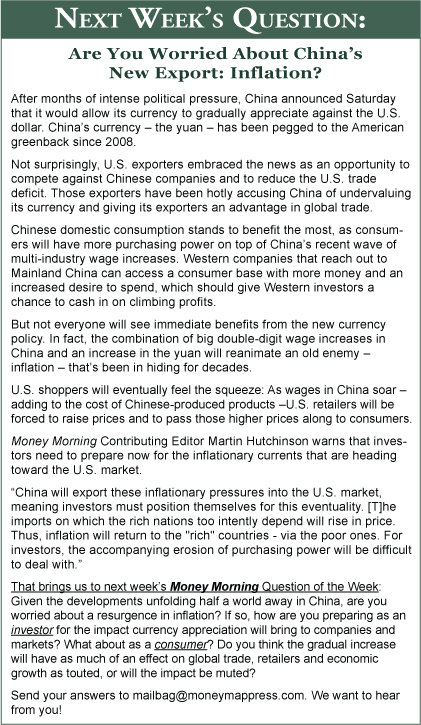The news that there is $1 trillion of Afghanistan mineral wealth hiding in the country's scarred and deserted landscape has global investors calculating how likely it would be for this incredibly poor country to transform itself into a natural-resources powerhouse.
It has also spawned debates about which nations should be given a piece of this vast apparent fortune.
The discovery - and its transformational potential - is mind-boggling: At $1 trillion, the estimated value of the mineral reserves is 100 times the size of Afghanistan's entire economy, estimated at $12 billion. And it's not just the dollar figures that could bring about change. Much of Afghanistan's economic activities involve drug-trafficking and terrorism. About 40% of the country's population lives below the poverty line, and 70% lives on $2 a day.

All of that could change - but only if the many challenges can be overcome. For one, Taliban leaders control some of the areas, and others are surrounded by rugged terrain; getting the minerals out of the country will be tough because of a lack of ocean access and other needed infrastructure.
The ability for a potential fortune to spawn corruption was seen during 2007 copper negotiations with China - the Afghan minister of mines has been accused of accepting a $30 million bribe in return for promising to award China the mining rights.
Given the challenges and concerns - not to mention the Taliban's presence - many observers worry that Afghanistan is headed down the same path as Nigeria or the Democratic Republic of Congo, countries that are afflicted by bribery and infighting and that have done virtually nothing to improve the lives of the average citizen.
This prompted last week's Money Morning Question of the Week: Is this mineral wealth good or bad news for Afghanistan? Does this remarkable discovery mark the beginning of a thriving, mineral-rich natural-resources powerhouse, or will greed and corruption short-circuit the transformation before it ever gets started? What role do you think such countries as the United States and China - each with an established presence in Afghanistan - should play? Given their involvement, should either or both of those countries be able to profit from this discovery?
The following responses highlight how many readers feel Afghanistan's mineral wealth has little hope for success, that political and economic corruption will likely hinder any chance of progress, and that the United States' involvement in the country has questionable motives.

Afghanistan: Headed for Devastation and Disaster
Given the present social, cultural, educational, and political conditions in Afghanistan, I do not see how the discovery of great mineral wealth can be anything but a disaster. The best that could be hoped for would be for the United States to take over the country as a protectorate and spend the next 50-100 years bringing it out of the Middle Ages, using the mineral wealth to pay the costs, but I don't think that would be good for us. And in any case, the do-gooders here and around the world would protest that we were exploiting the Afghan people, and that we should allow them self-determination. And so we probably will get out, in which case I think Afghanistan is far more likely to end up like the Sudan, where oil wealth is enabling genocide, or the Congo, where other mines and mineral wealth are supporting the absolute devastation of the land and its people.
Certainly, Afghanistan has relatively little water, and given that mining is usually a water-intensive process, and one that leaves the water in a completely polluted state, what little water they have will be trashed. Oh, it is possible to treat mine process water until it is as clean as it was before being used, but this is expensive, and requires strict rules that are enforced, not subject to bribes, etc.
No, my guess is that within a generation or so, the land will be devastated, with its groundwater depleted and its surface waters polluted such that it will be decades or centuries before they are again safe to consume. There will be a few individuals who become fabulously wealthy, while most of the people will die or become refugees in neighboring countries. Of course, the wealthy will move on as well, but it would be inappropriate to call them refugees. Even the parts of Afghanistan without mineral wealth will be drained of water because it is so valuable in mining that it pays to drain aquifers and pump the water for hundreds of miles for mining, leaving wells dry and lands desolate.
I grieve for Afghanistan and its people. They have suffered two invasions, and serious misrule between them. The people are uneducated and poverty-stricken. And any hope that they may have had that their situation might improve is now likely to be devastated by rapacious people and companies that will have even less mercy than invading armies or feudalistic despots.
- Gordon F.
Bleak Outlook for Positive Future
This story of natural resources in Afghanistan was dug out recently by The New York Times, though it's relatively old news in fact. However, it is possibly a politically convenient moment to put it on the table to give some kind of justification to keep foreign troops in Afghanistan.
To overcome local resistances will nevertheless be extremely difficult. No one was ever able to subject Afghan people, and the present - shaky - alliance of Western troops won't do better. Besides, the local tradition of corruption and tribal warfare won't make things easier. The ongoing war will not be paid off by those natural resources, for sure. It's hard to think of a workable way to get the average Afghani to pull an advantage out of this gift of nature. So the question of "curse" or "benefit" remains unsolved.
- Werner S.
A Curse
It's quite interesting that all of the sudden the Afghanis are sitting on over $1 trillion worth of precious minerals (by the way, Russia had already reported that in the 1980s, but guess what - the way the war was going for them made it a bad deal, not worth it). So this report came right after [President Hamid] Karzai is planning to abandon the U.S. peace plans and is trying to "bring" peace on his own (and the corrupted bunch of warlords and relatives who surround him, hmmm). And this report came just weeks after the visits of Chinese authorities and Iran's [President Mahmoud] Ahmadinejad (again, hmm!?).
So to answer your question: a curse. We're going to try to bring Karzai down; he is trying to bring Chinese and Iranians as new allies promising a piece of those minerals. And for the Afghanis...? Who cares! They run the most profitable drug business in the Far East. Sounds to me like "normal business."
I feel for the boys and girls and their families who are there in the middle of a lost-lost situation; time to bring them home.
- Constantino R.
Another Congo
A repeat of Nigeria and the Congo - absolute corruption, usurpation by the Taliban to fund world-wide terrorism, endless wars until the wealth is extracted, and nothing to improve the lives of the Afghani people. An ill-advised disclosure of inherent national wealth with no oversight established to assure lifting Afghanistan out of the dark ages versus allowing the usual pillage by unscrupulous, rapacious and evil self-serving cabal(s).
- Gloria M.
Conspiracy and Corruption
Wonder how long the government knew about this before the press release was made and how much of their resources have already been pillaged. Let's not forget the start of corruption and money laundering activities which will create much more social inequality within the region.
- Nash S.
What the War Is Really About
I knew there was more to this war than getting rid of the Taliban and the so-called introduction of the "Big D" - democracy! It's either oil or mineral wealth. Now the guys on the ground know what they are really fighting for! Shame!
A few will gain from the wealth and the majority will still be living in huts.
- David B.
What a lame justification for the billions spent and the lives shed in this land of destroyer of empires. Looks like major spin, just as the populace of the USA is realizing what lies we have been sold about this place.
- Gordon C.
The mineral wealth is the key reason for the war in Afghanistan. The U.S. invested heavily in studying the geological regions in Afghanistan, then we can sell their wealth to China, and leave the Afghanis high and dry...
- "Liberty"
Could Be a Win-Win
I say the least we can do now is give them back their wealth to rebuild their country to the former glory it was in the 1960s. I hear that their capital used to be very cosmopolitan like that of New York, with many religions and cultures living side by side.
Give the people the choice of picking their own president (not one that the American government feels is suitable) and you will see a return to normalcy within 15 years.
Then trade with them, at the right prices (for their lithium, copper, gold, etc. so they can buy our goods and resources). This new stability will create even bigger markets for the West, with neighboring countries flourishing, like those of Pakistan, India, the Balkans, etc. and wanting Western expertise and products. And when their standard of living improves, they will want the Apple products, etc. as well...
It's a win-win situation done democratically.
- Harpal S.
[Editor's Note: Thanks to all who responded to last week's Question of the Week feature regarding Afghanistan mineral wealth. Be sure to answer next week's question: Given the developments unfolding half a world away in China , are you worried about a resurgence in inflation? If so, how are you preparing as an investor for the impact currency appreciation will bring to companies and markets? What about as a consumer? Do you think the gradual increase will have as much of an effect on global trade, retailers and economic growth as touted, or will the impact be muted?
Send your answers to [email protected]!
Is there a topic you want to see covered as a Question of the Week feature? Then let us know by e-mailing Money Morning at [email protected]. Make sure to reference "question of the week suggestion" in the subject line. We reserve the right to edit responses for length, grammar and clarity.
Thanks to everyone who took the time to participate - via e-mail or by posting their comments directly on the Money Morning Web site.]
News and Related Story Links:
- Money Morning:
Will Afghanistan's Mineral Wealth Bring the Nation's Rebirth or a Commodities Curse? - NY Times:
U.S. Identifies Vast Riches of Minerals in Afghanistan - CNN:
Why all the talk about minerals now? - AFP:
US discovers huge Afghan mineral wealth: report - The Independent:
The curse of oil still stalks Nigeria delta - The Economist:
Oh great, another Congo - Money Morning News Archive:
Question of the Week Feature


